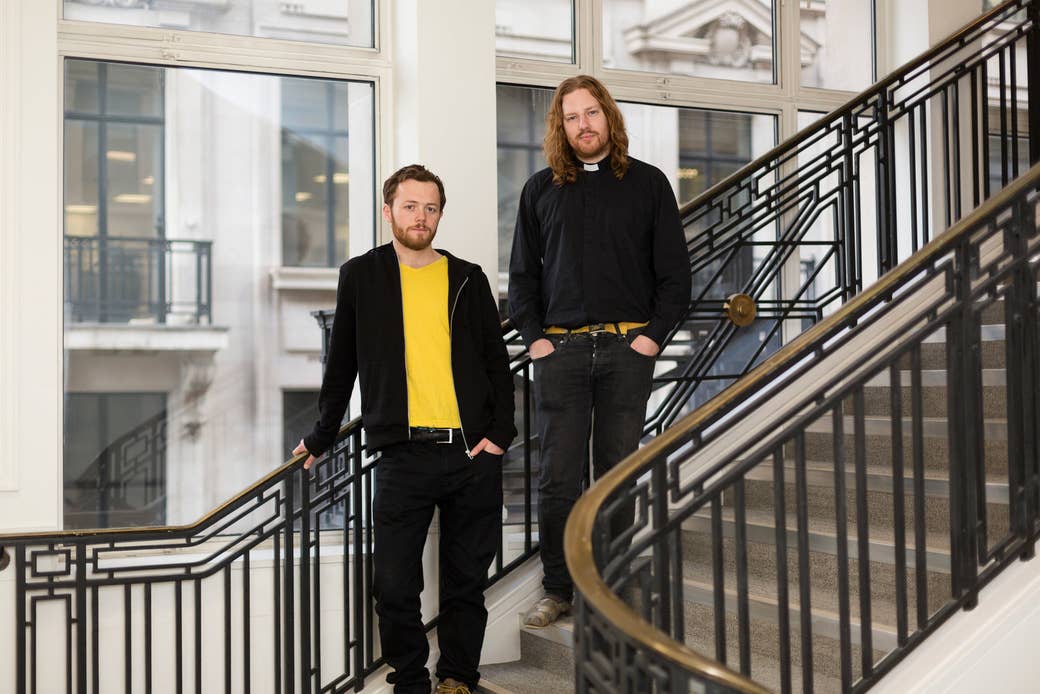
“We call him the voice of Yemen abroad,” Ahmad Algohbary, a reporter and activist based in Sanaa, said. “Sam has become the talk of our streets.”
Kim Sharif, a Yemeni lawyer who has lived in the UK for decades, said many members of the Yemeni community were aware of the actions of Sam Walton. “Yemenis are very brave people themselves, so if they see someone doing something brave, they appreciate it. They thanked him, and quite a few of the leading members of the country sent him special messages, thanking him.”
Sara Adam, another Yemeni activist based in Sanaa, also said Walton was well-known to the English-speaking Yemeni community. “We know and love him,” she said. “I think he helps to stop the war on us,” she continued. “We love and respect him so much – he always stands with us.”
This January, Walton, a 31-year-old Quaker from Britain, broke into a BAE Systems base with a Methodist minister and attempted to smash up British-constructed fighter jets, sold to Saudi Arabia for use in the Yemen civil war.
He and the minister, 30-year-old Dan Woodhouse, were caught and charged with two counts of criminal damage. Over the course of a three-day trial near Manchester, the pair justified their actions. They were an attempt to prevent war crimes committed by the Saudis in Yemen, they said, an act of “necessity” to protect human health and life, and claimed they had a lawful excuse for the damage as it would protect other property in Yemen.
Extraordinarily, District Judge James Clarke agreed and found both men not guilty, under the Criminal Damage Act 1971, citing their right to damage property should there be genuinely held belief that doing otherwise might harm other something else – like the property of Yemeni civilians trapped in a civil war.
Only days before, defence secretary Michael Fallon was questioned by a Commons committee on why a deal to sell Typhoon jets to Saudi Arabia had not yet gone through. He said criticism of Saudi Arabia was “not helpful”, and that the government needed to do “everything possible” to convince the Saudis to take “batch two” of the jets. The case’s outcome may disrupt that effort.
The Methodist minister and the Quaker broke into a secure military base, in the middle of nowhere, to attack state-of-the-art military fighter jets, all in an attempt, they say, to prevent war crimes being committed by Saudi Arabia – and ended up famous in Yemen.
How did this happen? Blame a wedding.
Last year, Walton approached Woodhouse, whom he’d only met a couple of times, while they were queuing to sign the wedding certificate after a Quaker ceremony – which every guest has to sign. He told Woodhouse something needed to be done to bring attention to the government’s decision to continue arming Saudi Arabia. “Within a minute I had just said, 'Let’s possibly go to jail together,' and he was totally up for it. Which isn’t usually how that conversation goes," he says.
Walton grins as he tells this story, sitting barefoot outside the London Friends House, just down the road from King's Cross station. When BuzzFeed News spoke to him and Woodhouse, the pair had been prepping for the trial, which was due to start in a few weeks.
Walton has been a campaigner since he was a student at Nottingham. “The way my dad put it was that I got a mediocre degree in physics but a really good degree in activism,” Walton grins, again, showing a slightly chipped front tooth.
When he heard about a Paveway IV bomb, manufactured in the UK as part of a £150 million deal, being detonated in a Yemeni food store, “it felt like this was the reason I was put on this planet,” he says quietly, hands folded in his lap. Saudi Arabia is the only country known to use those particular weapons.
“The conflicts that the arms trade drives, mass famine, mass rape. It feels like we can’t begin working on development and stuff like that without … There’s no point teaching a man to fish if you’re just going to shit in the pond,” he says.
Yemen is frequently cited as one of the worst consequences of the global arms trade. Since 2015 the country has been embroiled in a civil war, exacerbated by Iranian- and Saudi Arabian–backed proxies. The effect on the civilian population has been devastating: 10,000 people killed, according to the United Nations in January, and an estimated 40,000 injured. International aid organisations have stated they are dealing with the biggest cholera outbreak in recent history, with the latest figures from the UN estimating 850,000 cases. Seven million Yemenis are thought to be in urgent need of food supplies. Horrifying photographs documenting the food crisis have been published widely.
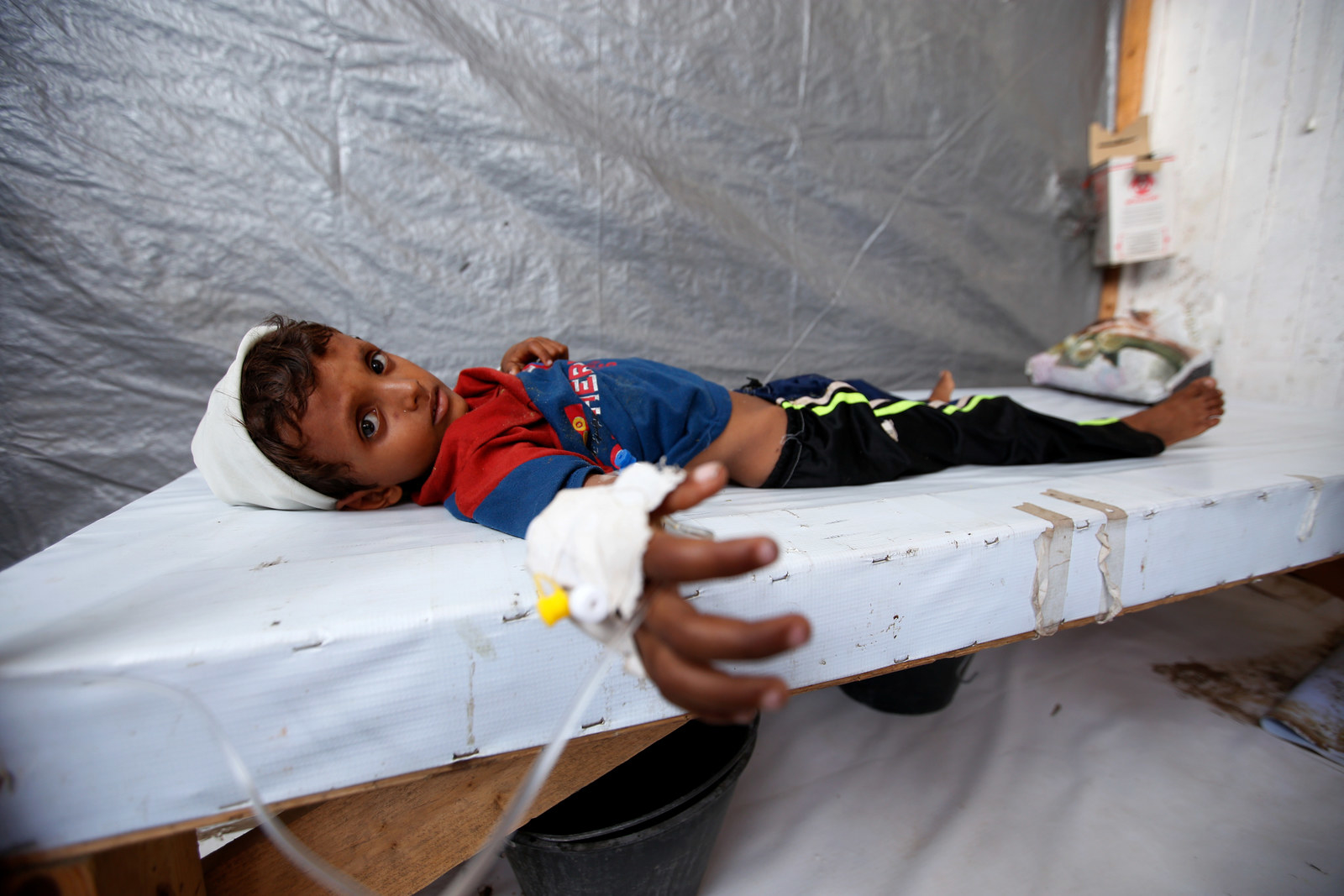
Yet, since March 2015, the British government has licensed £3.8 billion in arms sales to the Saudi government and confirmed that both Typhoon and Tornado jets, manufactured in the UK and which carry the Paveway IV bombs, have been used over Yemen.
The Campaign Against Arms Trade (CAAT) states that the UK government has been complicit in arms sales to Saudi Arabia for decades. “These arms sales has escalated as the brutal bombardment has been unleashed on the people of Yemen,” spokesperson Andrew Smith said.
Smith described the sales as a “moral test” that the government had failed repeatedly. “When Saudi Arabia has been looking for international allies to legitimise the bombardment, or play down the devastating impact, they have always been able to rely on the UK to do exactly that.
“That is despite the bombardment causing one of the worst humanitarian disasters in the world, and being largely responsible for the worst cholera outbreak on record. Saudi Arabia is still on the UK priority market for arms export, and is still by far the largest buyer, with government ministers working directly in tandem with BAE to push even more fighter jets.”
“We need to address this,” Walton says. “With the aid to Yemen at the moment, the Yemeni people I’ve chatted to are just like, ‘This is a fucking insult, like you are giving us a sticking plaster after stabbing us. Just stop stabbing us. We’re not bothered by the plaster.’”
Woodhouse too, had started thinking about what the purpose for his ministry truly was. “I kind of thought, well, I guess I’ll try and bring down the international arms trade,” he says.
“I had seen what was going on in Saudi Arabia, I could see the government weren’t going to change their stance despite the obvious war crimes that were happening there,” Woodhouse says. “I could see that something needed to be done more than just your conventional campaigning. All of that had gone on in my head before that day, [so] when he asked me I was just like: ‘Yep, sounds good'.”
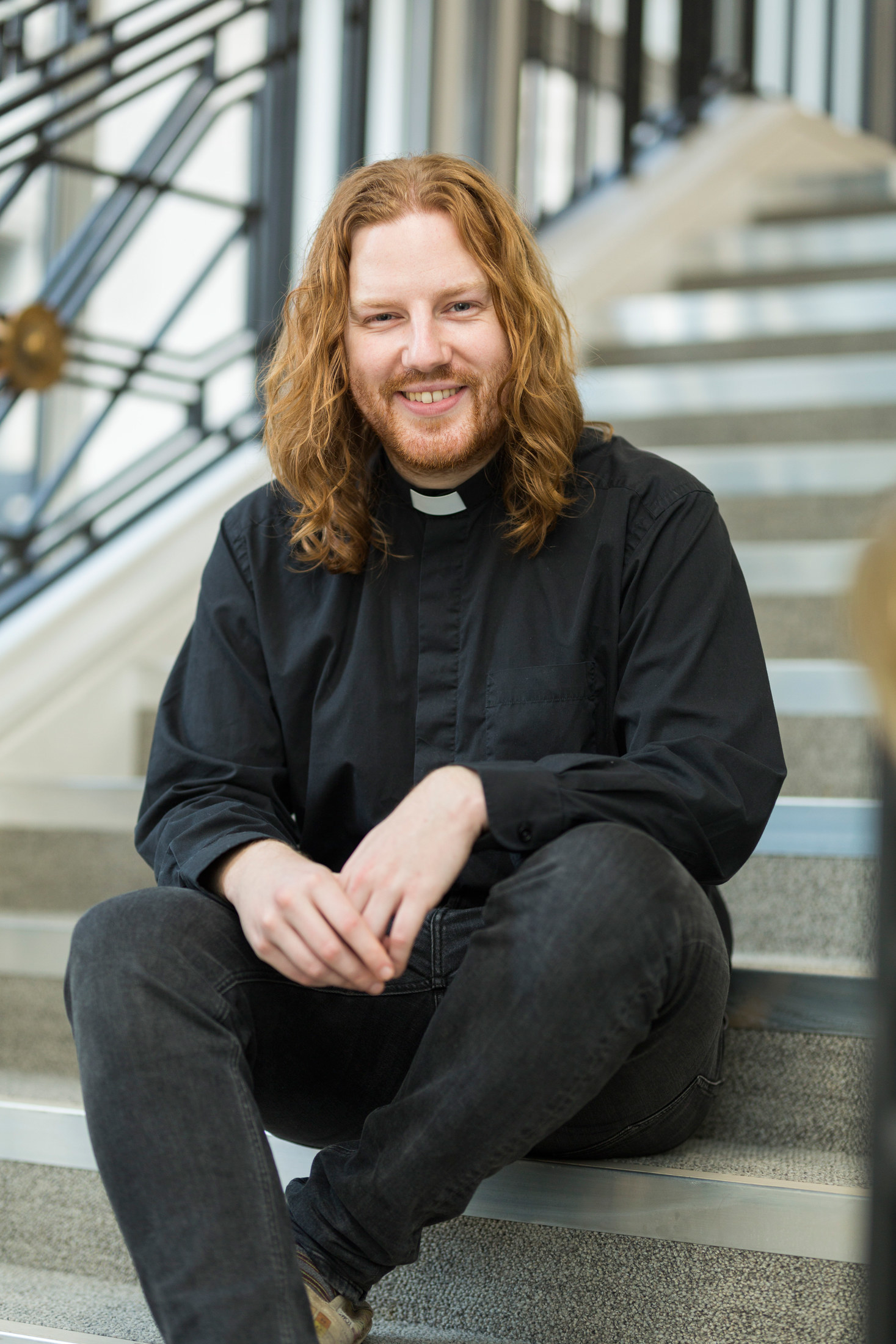
The minister explains they took inspiration from the female Ploughshares activists 21 years ago, who broke onto a base and disarmed a fighter jet bound for East Timor. The women – who were held on remand for six months – were later found not guilty under the Genocide Act.
But the target now was BAE Systems’ Wharton base, Lancashire, where the company make the final additions to the assembly process constructing (among other things) Typhoon and Tornado jets.
Walton took the lead on the planning, Woodhouse says. “After it came out, one of my chief stewards at church said: ‘This is really well planned, and hats off for everything – it’s really impressive. I just wonder if you could bring some of that planning to our church’,” he laughs.
Using public records, they located the fences and where they could get in, and also meandered around the perimeter for hours – "a lovely walk," according to Woodhouse. But there was a hitch: They had no idea which of the many hangars the planes bound for Saudi hands were kept in – until they stumbled across a local plane spotter.
“They have zero interest in hearing what you have to say, or care about you as a person, or anything like that,” he explained. “We got talking and asking him some questions and within 10 minutes he’d told us absolutely everything.”
The decided to go on a Sunday night as the BAE base was likely to be at it’s most quiet and thinly staffed.
As they were setting out – after a pre-action pizza with garlic sauce – Woodhouse realised a crucial set of “very big” bolt cutters wouldn’t fit in their rucksack. “It’d [be] pretty obvious if two people are walking towards the base and one of them has got a massive pair of bolt cutters.”
So they wrapped them in a bin bag, which was fine – until they got to the fence. “I was holding the bin bag in one hand, and the bolt cutters in the other,” he says, laughing. “I thought: I’ve never littered in my life, but this is kind of a good time to do it. But I couldn’t bring myself to.” He ended up stuffing the bag inside his coat.
After they got through that fence, and walked across a floodlit runway, there was a “strange calm” that set in. Walton explains, his voice rising with each word: “We got to the hangar and the doors open...so we’re like, well, that’s...good luck?”
At the second door, their luck ran out. Just able to see the nose of one of the fighter jets through the perspex window, they were stumbled upon by security. “We just put all our tools down and you could see they were just like, ‘what the actual fuck,’” Walton laughs. “I really don’t believe in ableist comments, but here it is strictly relevant. They were like 20,000 doughnuts past where they needed to be to catch anyone.”
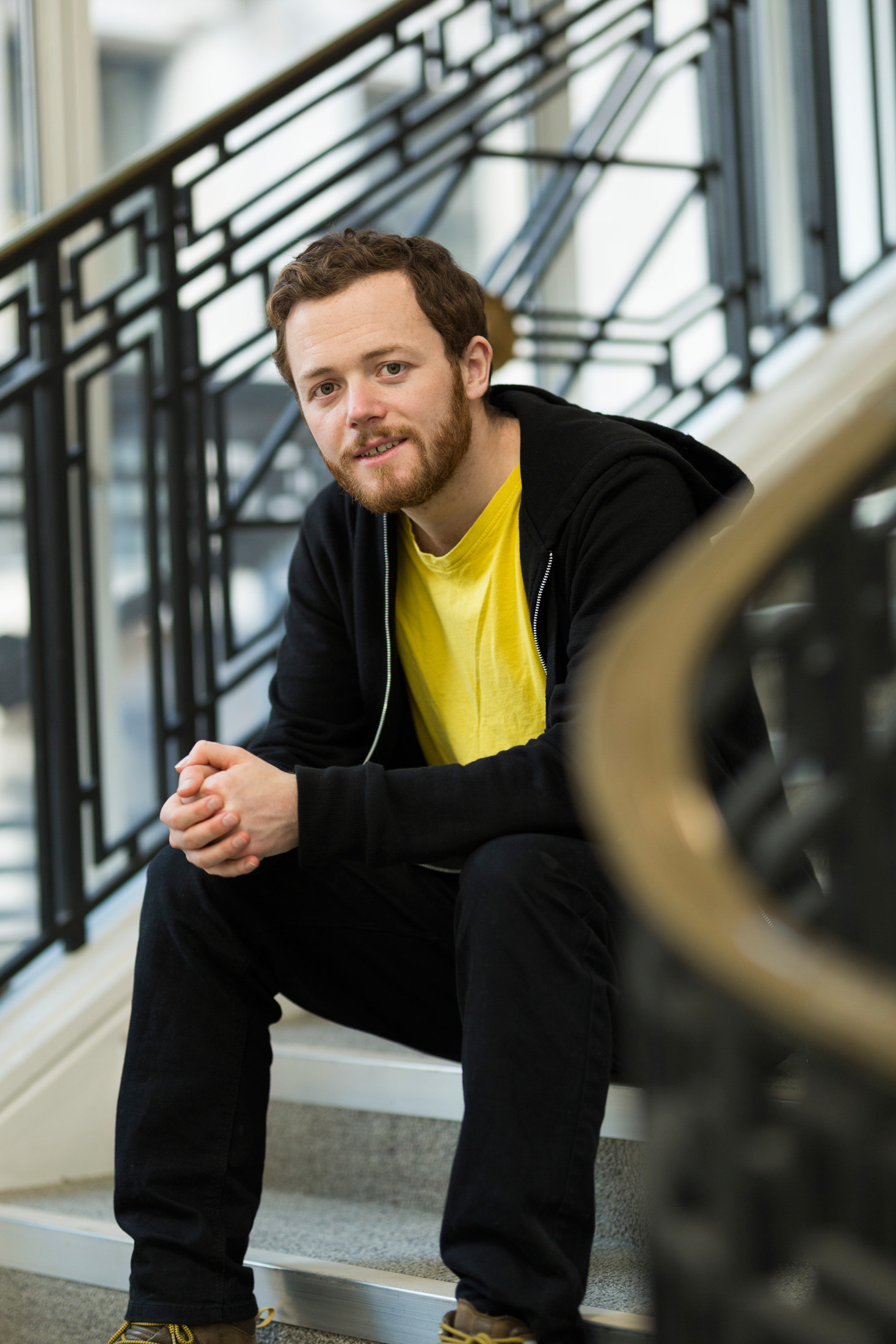
“There was this great bit when we’d been caught and we’re just standing by this wall waiting,” Walton chuckles, “and I’m just like: ‘Woody’, and he loosens his scarf and they see the collar and they’re just like ‘shit’. These aren’t two randoms – this one’s a priest.”
Five minutes after he explained where they’d cut in, the same security guy came back. “‘We can’t find it’,” they told Walton. “‘Shall I show you?’ And they’re like: ‘Oh, that’d be great.’ So I go and show them where we cut through the fence.” During the trial, the security guards who encountered Walton and Woodhouse described them as “very pleasant” gentlemen.
The pair were taken to Blackpool police station. The officer who booked them took one look at the minister, in his full Cambridge Methodist regalia, and, according to Woodhouse, “was suddenly like, I want rid of this as soon as possible”.
“They had a Methodist reverend in, and they did not want to have a Methodist reverend in,” Walton says. “Sitting in a cell, reading his Bible, you know.” Basically, he says, they were “just shitting the bed” from the moment they arrived.
Locked up in Blackpool’s freezing cells (the cells in Camden, north London, are much more comfortable, Woodhouse confides), neither had a clue if there had been any reaction, until their lawyer mentioned there had been “some” coverage. “And I asked 'what',” Walton’s voice rises, the disbelief still clearly evident months after the fact, “and he just said: ‘front page of every news outlet in the country'.”
While this was happening, both men’s houses were being searched by police, with officers showing Woodhouse’s parents (who had innocently agreed to cat-sit) that their son was on the front page of the BBC after breaking into a military base. A friend in Spain got in touch after seeing him on Reddit. Other messages of support flooded in. “It feels bizarre that people have heard details about my life through the media,” he says.
When the charges came, they were not what the protesters had been expecting. In an unusual decision, the Crown Prosecution Service (CPS) elected not to prosecute on the basis of potential damage, which could stretch to the hundreds of millions. Instead, they capped the amount at under £5,000, preventing the case from being heard in front of a jury, and placing the final decision in the hands of a magistrate judge. A pretrial hearing ruled against allowing expert evidence on Yemen to be submitted.
Andrew Feinstein, executive director of Corruption Watch, who was supposed to give evidence at the trial, expressed his disappointment at the decision to not give evidence, and emphasised that the UK was among the worst for selling and producing arms.
“The reason for that is the closeness of the companies to their governments. Many of these companies were state-owned for many, many years,” he told BuzzFeed News. “But even when they are private, like BAE, they are almost seen as an arm of the state because of their role in defence policy. As a consequence the state almost acts as salesperson in chief for the industry and, second of all, also protects them.”
Having trials like Walton and Woodhouse’s conducted as far from the public eye as possible was part of a dangerous “democratic deficit”, Feinstein said, with the arms trade “not open to scrutiny in any meaningful way”.
Media attention, as well as support from the anti-arms and Yemeni community, helped to strengthen the pair's resolve. During the trial, a number of activists tweeted from the country #StandWithSam. “That’s really nice,” Walton says, looking back, “but can we not? I’m standing with you. It means so much because they’re the voices that aren’t being heard at all. They are the voices being silenced by BAE’s bombs being dropped by Saudi Arabia.”
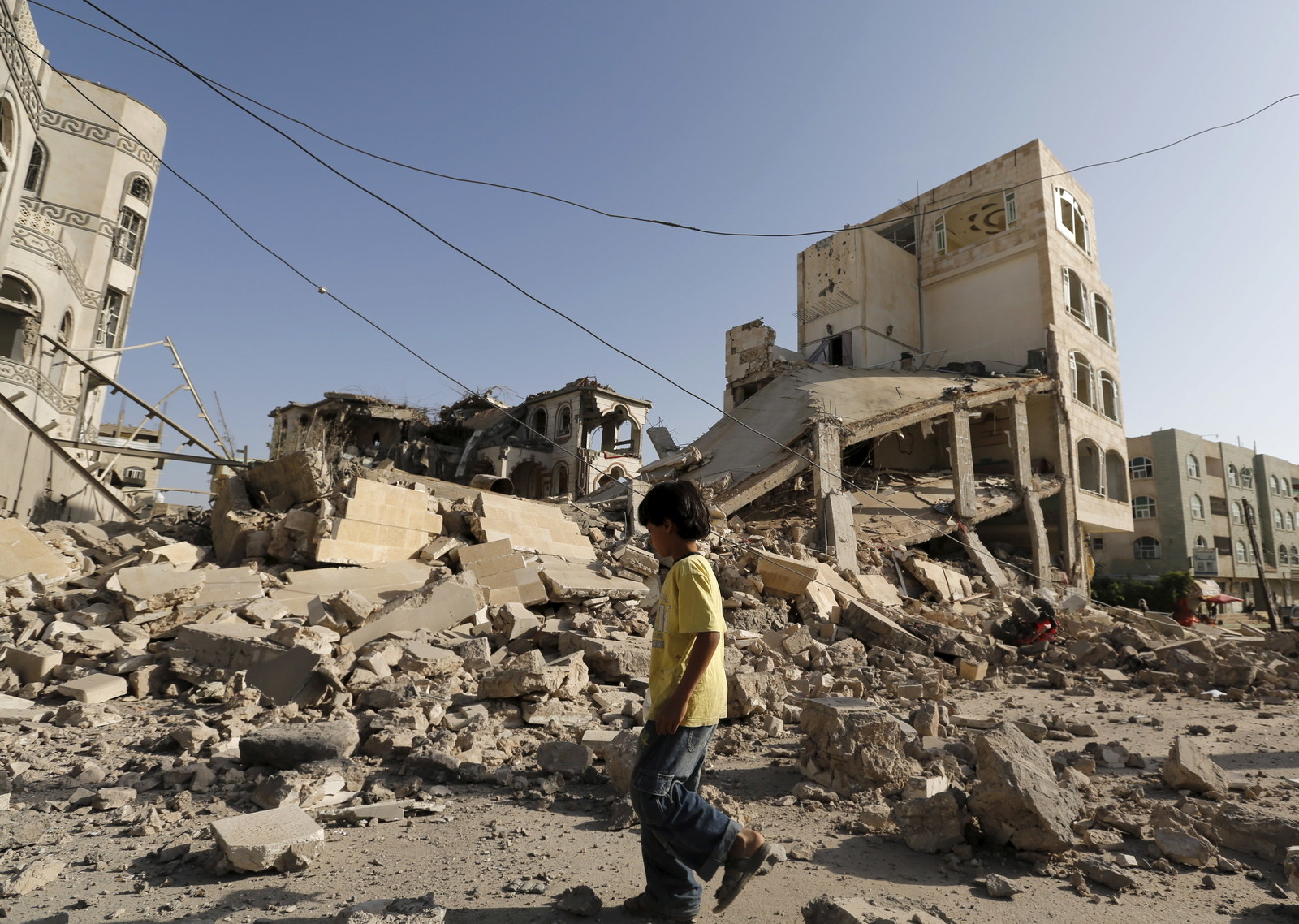
But Judge Clarke’s decision turned the expected outcome on its head. Summing up he praised the faith of the two men on trial, Clarke, rebutting the prosecution's argument that the defence of property was too remote, and said the pair’s actions were based on logic: “Few aircraft means fewer bombings mean less destruction of civilian targets.”
“I heard about their belief of BAE’s role in the supply of aircraft to Saudi Arabia. I heard about their beliefs regarding events in Yemen, that they included the death of civilians and destruction of civilian property, and the basis for their beliefs that this amounted to war crimes.”
He continued: “I heard that they had tried other methods of protest and letter writing in the past. I heard that they had not taken this decision lightly given the scale of the destruction they believed was occurring in Yemen.”
However, the judge also noted that the case was “highly unusual in terms of its personalities” and reiterated that his decision set no precedent. “It is in many ways unique,” he said.
Reached by phone moments after the verdict, the pair’s lawyer, Mike Schwarz, responded by saying “blimey”.
Smith, of CAAT, was jubilant at the result, stating that it “totally vindicates” the men’s actions. “The ones that need to be held accountable are companies like BAE Systems, which has fueled and profited from the terrible war, and the UK government, which has helped them every step of the way.”
BAE Systems, reacting to the verdict, said in a statement: “We note the verdict today. The matter was for the magistrates’ court to resolve.”
Algohbary, the activist in Sanaa, said the pair's efforts would "never be forgotten".
"The world has forgotten our crisis," he said. "We want you to protest and stand with us, we are humans just like you, we deserve to live in peace, our children deserve to live in peace not fear.”
Speaking after the conclusion of the trial from a nearby pub, Walton and Woodhouse were delighted – if shellshocked.
“I didn’t see it going that way,” Walton exclaimed down the phone. “Superb. Really, we have been found not guilty but it’s a complete condemnation of BAE Systems and UK government export policy, and our complicity in war crimes in Saudi Arabia.”
Jubilant, and clearly still processing the whole experience, he added: “It was a fucking weird thing to do.”
